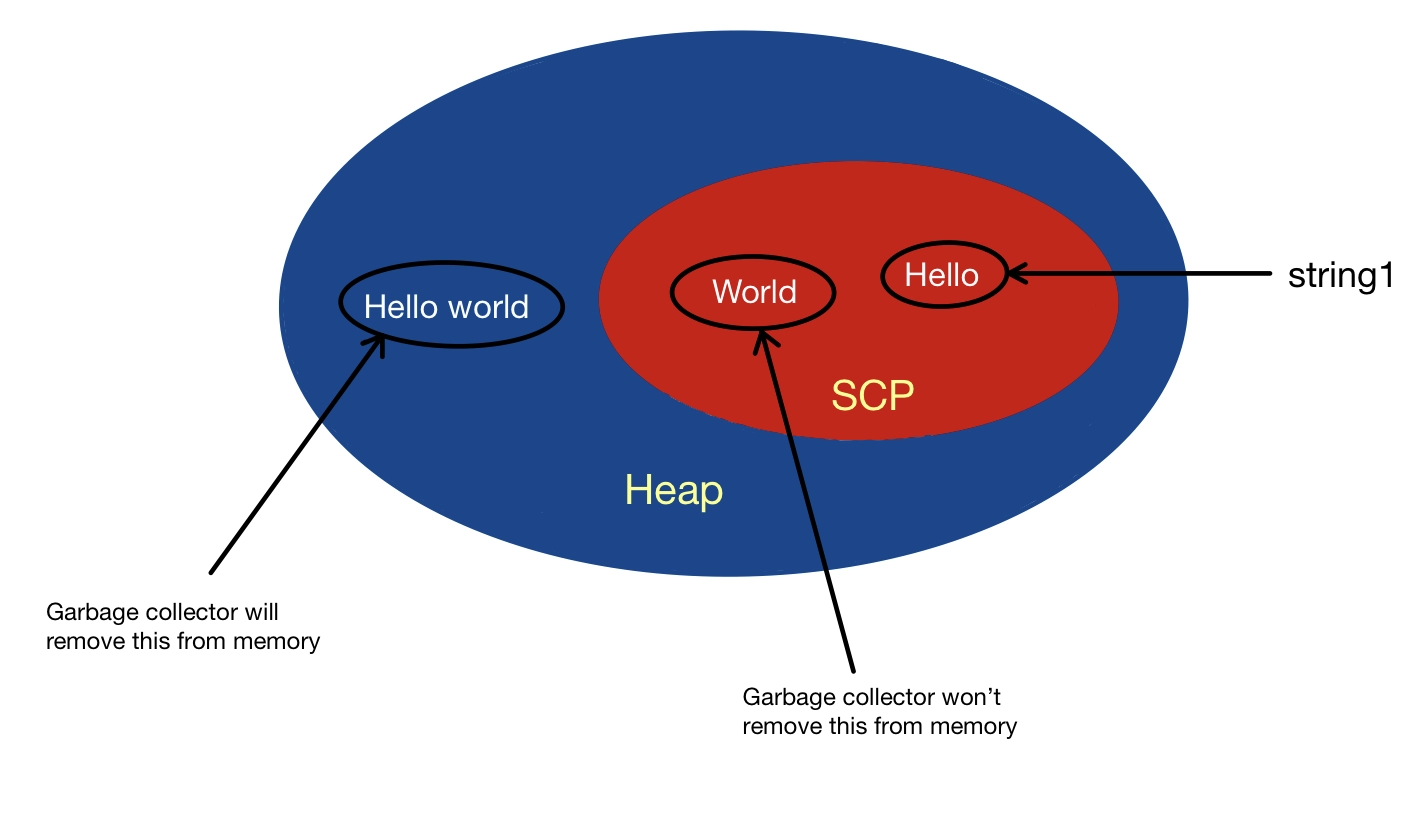Why Are Strings Immutable in Java? Comprehensive Guide for Beginners
Wiki Article
What Is Immutable Strings and Exactly How It Functions
In the realm of programs, understanding the idea of immutable strings is extremely important for creating safe and secure and durable applications. Unalterable strings refer to strings that can not be changed after they are produced, making certain information integrity and predictability within the code.The Basics of Immutable Strings
Immutable strings, as a basic concept in shows, are character sequences that can not be transformed as soon as they are produced. This suggests that as soon as a string is designated a worth, that value can not be modified. In languages like Python and Java, strings are unalterable things, bring about various effects in regards to memory administration and data honesty.Among the key advantages of unalterable strings is that they give a complacency in information control. Since the web content of an unalterable string can not be customized, it ensures that the initial data stays undamaged, minimizing the risk of unexpected modifications during program implementation (Why are strings immutable in Java?). This residential property also streamlines debugging processes, as programmers can rely on that when a string is specified, its worth will certainly not be unintentionally modified
Furthermore, immutable strings promote reliable memory usage. When a brand-new string is produced based upon an existing one, instead than changing the original string, the new worth is stored individually. This technique boosts efficiency by decreasing memory fragmentation and simplifying memory allowance processes. In general, recognizing the basics of unalterable strings is essential for grasping programming ideas and enhancing code performance.
Advantages of Unalterable Strings
Structure upon the security and effectiveness benefits of immutable strings, their advantages expand to improving code reliability and simplifying simultaneous shows tasks. By being immutable, strings can not be modified after creation, which gets rid of the danger of unexpected modifications in the information they save. This fundamental immutability ensures that as soon as a string is produced, its value continues to be constant throughout the program's implementation, decreasing the possibilities of bugs brought on by unanticipated modifications.Furthermore, unalterable strings contribute to code dependability by making it less complicated to reason regarding the state of a program. Considering that strings can not be changed, programmers can trust that a string will certainly constantly hold the exact same worth, streamlining debugging and upkeep efforts. This predictability results in much more secure and reliable codebases.

Execution in Programs Languages
Within various programming languages, the unification of unalterable strings is an essential element that impacts exactly how data is dealt with and manipulated within code structures. The application of unalterable strings varies throughout different programs languages, with each language providing its own mechanisms to support this principle.

In comparison, languages like C and C++ do not have built-in assistance for immutable strings. Programmers in these languages must manually execute immutability by enforcing regulations within their code to avoid direct adjustments to string things.
Finest Practices for Functioning With Immutable Strings
When taking care of immutable strings in programming languages like Java and Python, sticking to ideal practices guarantees safe and reliable information manipulation. Among the crucial ideal techniques is to use StringBuilder or StringBuffer rather than Homepage directly controling strings, particularly when taking care of comprehensive concatenation operations. These classes offer mutable alternatives for string control, assisting to avoid unneeded memory allotments and improving performance.Additionally, when functioning with delicate information such as passwords or API secrets, it is crucial to stay clear of storing them as simple message in immutable strings. Utilizing secure storage devices like char varieties or specialized collections for taking care of sensitive details helps mitigate safety and security risks linked with unalterable strings.
Real-world Applications and Examples
Checking out practical applications of immutable strings in numerous sectors discloses their considerable effect on data honesty and system reliability. In the health care industry, unalterable strings play a crucial function in making sure the safety and discretion of individual information. By protecting against unauthorized adjustments to delicate details such as clinical documents and prescriptions, unalterable strings help keep conformity with strict personal privacy policies like HIPAA.Banks also benefit from the unalterable nature of strings to enhance the protection of consumer information view it now and deal documents. Unalterable strings assist prevent fraud and unauthorized changes to monetary info, supplying a robust defense versus cyber dangers and making certain the depend on and self-confidence of clients.

Conclusion
To conclude, unalterable strings are dealt with and unchangeable series of personalities that use advantages such as string security and enhanced efficiency in shows. They are implemented in different programs languages to guarantee information integrity and security. Best methods for collaborating with immutable strings consist of preventing straight modifications and utilizing approaches that return brand-new string things. Real-world applications of immutable strings include information file encryption, caching, and string adjustment tasks.Unalterable strings refer to strings that can not be modified after they are produced, making certain information honesty and predictability within the code. When a new string is created based on an existing one, rather than changing the initial string, the new value is saved individually.In languages like Java and Python, strings are unalterable by default, indicating that as soon as a string object is produced, its worth can not be altered - Why are strings immutable in Java?. Best practices for working with immutable strings include staying clear of straight alterations and utilizing methods that return brand-new string things. Real-world applications of immutable strings include information encryption, caching, and string manipulation tasks
Report this wiki page